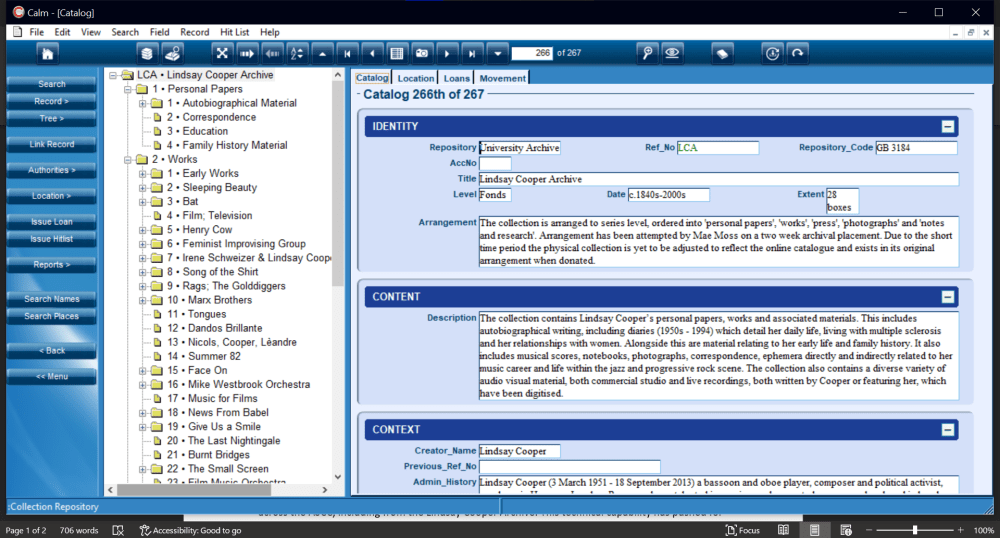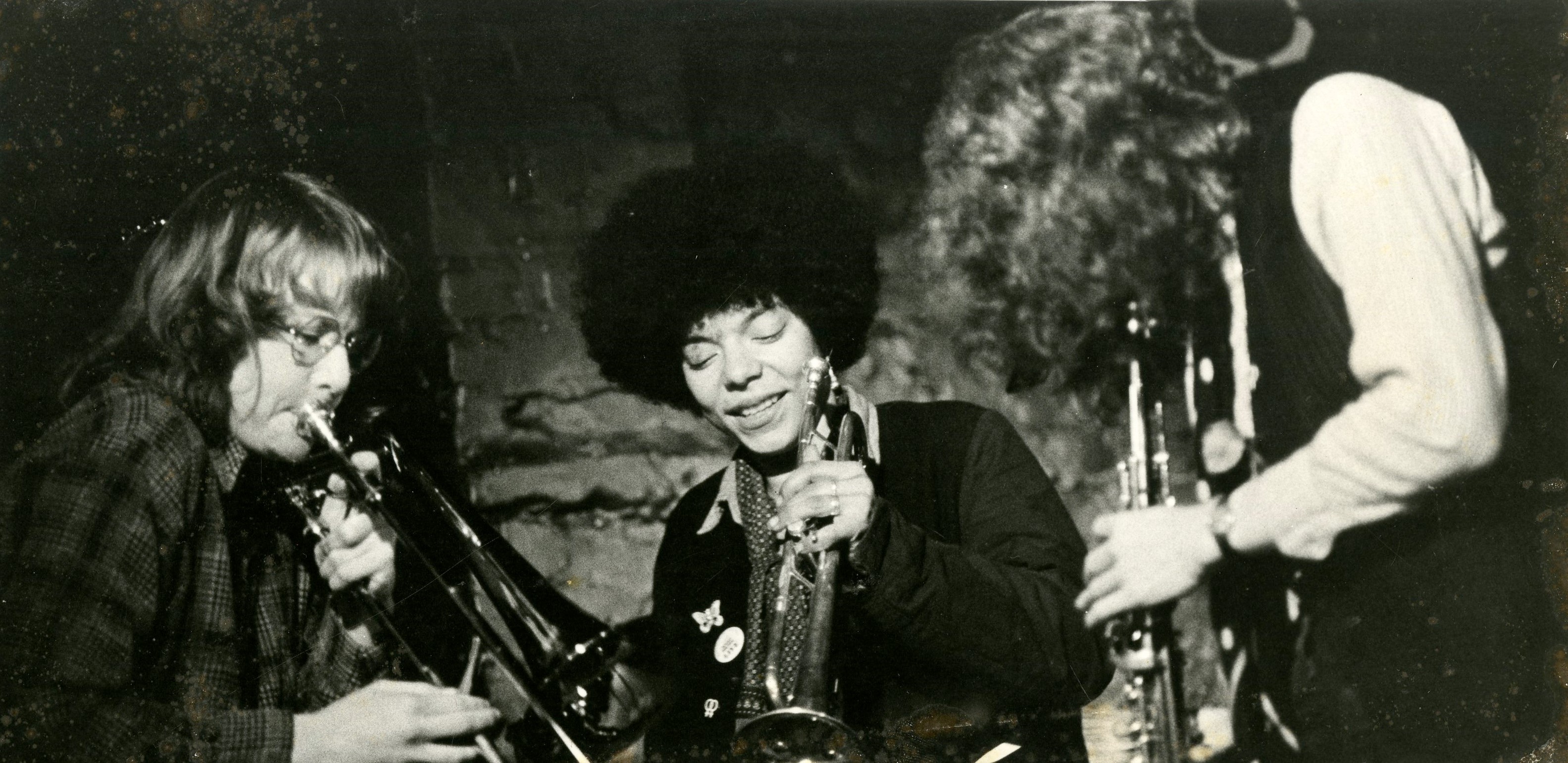The practice of cataloguing is often presented as a core activity in the archival profession. When we refer to ‘archival cataloguing’, we tend to mean both the activities of archival arrangement and description. Back in August 2020, Georgina Orgill (Stanley Kubrick Archivist) outlined these related practices in greater detail in her blog post on archival cataloguing.
Georgina also highlighted the significance of archival cataloguing to researcher access: “Often, archive catalogues are seen as authoritative – they are what you look at to make sense of a collection, to request material, and to understand what something is.” The information about our archival material – or catalogue metadata – forms a key access point for students and researchers to learn of and about the collections we care for.

Catalogue metadata is also an essential resource for our systems, namely our Digital Collections portal. Our Digital Collections portal pulls metadata from our source cataloguing systems, including our archives catalogue, and presents this metadata alongside their related digitised and born-digital assets. Elisabeth Thurlow (Digital Preservation & Access Manager) has written about the kind of ‘digital housekeeping’ that makes online discoverability and engagement with digital archival material possible.
Together, Georgina and Elisabeth highlight how catalogue metadata supports access to our collections both in-person as well as online.
The Digital Collections portal has the potential to provide ready online access to digital material held across the ASCC, including from the Lindsay Cooper Archive. This technical capability has pushed for renewed attention to the Lindsay Cooper Archive catalogue, because a large portion of this catalogue remains unpublished. This unpublished status doesn’t in itself prevent the Digital Collections portal from using the metadata, since the portal can pull metadata regardless of its publication status. However, it’s important that information about our collections remains consistent across our online access points where relevant and possible. If we plan to publish information about the Lindsay Cooper Archive on the Digital Collections portal, then it makes sense to publish this metadata where it was originally produced (the archives catalogue) as well.
Lindsay Cooper (3 March 1951 - 18 September 2013) was a lesbian composer, bassoonist, oboist and socialist-feminist activist. The Lindsay Cooper Archive was donated to UAL in 2017. The Archive contains print and photographic material pertaining to Cooper’s professional and personal life. This paper-based material includes documentation relating to the Feminist Improvising Group, which she co-founded alongside Sally Potter, Maggie Nichols, Georgie Born and Irène Schweizer in 1977; it also includes personal papers where Cooper recorded her experience living with multiple sclerosis. The Archive also contains several digitised audiovisual recordings that Cooper features as composer and/or musician.
The Archive has largely been arranged and minimally described thanks to the work of Mae Moss, who focused her placement at the ASCC on arranging and drafting catalogue records to organise the Lindsay Cooper Archive. Whilst we have published some of the higher-level (fonds, series) descriptions, many of the more granular (subseries, file, item) descriptions remain unpublished. One of the requirements for us to publish these records is to ensure that the records are compliant with ISAD(G), an international cataloguing standard that we—along with many archives worldwide—seek to adhere to. The standard outlines six mandatory fields (reference number, title, creator name, creation date, extent and level), and the ASCC additionally requires ‘description’ as a mandatory field for our catalogue records.
We are now building upon Mae’s placement work and are about two-thirds of the way through quality-checking these catalogue records. Quality-checking a historic cataloguing project can be a tedious and time-consuming process. In their respective blog posts, Georgina and Elisabeth emphasise how (re-)cataloguing is an ongoing and iterative process that requires ample time, resources and staffing to perform thorough research, consultation, writing and quality-checking.
Filling in any missing mandatory fields (e.g. date, extent) for the Lindsay Cooper Archive catalogue often necessitates directly consulting and (re)familiarising ourselves with the material. Of course, this hands-on engagement can also be a nice reminder of why we undertake collections care in the first place. The Lindsay Cooper Archive is a rich resource for people interested in a range of research topics, including experimental music, feminist sound practices and disability studies.

We plan to publish the Lindsay Cooper Archive catalogue records in their current condition for transparency and to support online access to its digitised audiovisual material. We nonetheless acknowledge that these records require further enrichment to be genuinely discoverable and usable.
If you have any questions about accessing the Lindsay Cooper Archive or its catalogue, please contact us at archive-enquiries@arts.ac.uk.

